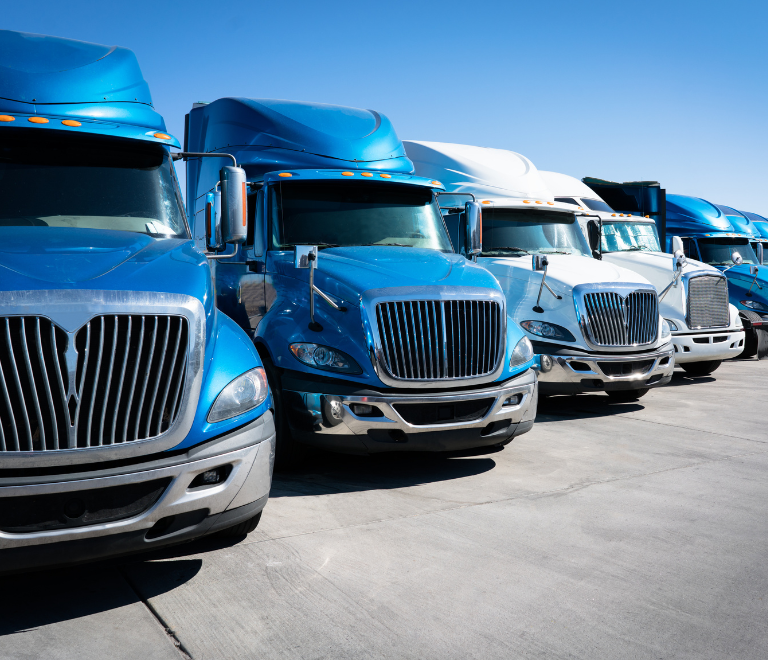Determining whether to rely on self-dispatching or employ a dispatch service to obtain loads is one of the most important decisions that every owner-operator must make. There is no single correct response to the query, and a variety of reasons can make either decision the best one.
The most crucial factor to take into account is undoubtedly pricing while making your choice. Dispatchers often receive a percentage of the money they make from each cargo they locate. While some dispatchers impose set fees (such as $50 per load), the majority of higher-quality dispatch providers typically charge between 5 and 10 percent for each load. It can add up quickly, especially if your business is small.
This article will examine the benefits and drawbacks of using a dispatcher versus attempting self-dispatch for owner-operator businesses. It will include:
- What Do Owner Operator Dispatch Services Do?
- How Are Dispatchers Loaded?
- Owner-Operators: When Should They Employ a Truck Dispatch Service?
What Do Owner-Operator Dispatch Services Do?
In essence, a truck dispatch service’s job is to manage freight on behalf of carriers or owner-operators. Finding cargo, making connections with brokers, having discussions, and eventually dispatching drivers and planning their routes are all parts of a dispatcher’s job description.
The back-office tasks of verifying truck drivers’ logs and keeping track of their hours are occasionally assisted by dispatchers. The greatest dispatchers might even go beyond, assisting you in keeping motor carrier compliance, handling delays, fostering stronger bonds with shippers, and other things. Dispatchers take a percentage of your earnings for each load they locate as payment for their services.
Freight dispatchers and brokers are two different things, and this should be understood. A freight broker is a company that is legally responsible for acting as a go-between for the manufacturer or shipper and the carrier when it comes to moving goods (who can move that freight).
Although the freight broker is legally permitted to represent both the shipper and the carrier at the same time, they should never have any financial stake in either party. On the other hand, a dispatcher is an individual who exclusively works on behalf of a carrier and is connected to them directly.
How Are Dispatchers Loaded?
Finding high-quality, pertinent loads for clients is the objective of a freight dispatcher. Once you’ve signed an agreement with an owner-operator dispatcher, it’s up to that person to get to know your operation and determine which cargoes are most appropriate for it.
Some dispatchers will look for loads through their personal networks. Alternatively, they frequently use load boards to find freight for you. That’s correct; much like anyone who self-dispatches, experienced dispatchers use load boards to locate the appropriate freight.
The load boards that a single owner-operator has access to are frequently used by freight dispatchers. Dispatchers use those boards in the same way, posting their customers’ trucks and allowing the matching algorithm to do the rest, or they search for matches themselves.
They only need to enter the details of the vehicle they are attempting to find—including its type, any unique features it could have, and the lanes, origin, and destination—to search.

Owner-Operators: When Should They Employ A Truck Dispatch Service?
There are undoubtedly benefits and drawbacks to hiring a truck dispatch service. The expense is the primary drawback. For a task that you might theoretically execute on your own, you’re handing someone else a large portion of your income.
The ability to spend more time traveling, though, comes with not having to worry about obtaining loads yourself. Hence, you can wind up delivering more loads and making more money as a result than you would if you tried to self-dispatch without a quality system in place.
Also, the greatest truck dispatchers often are strong negotiators and approach meetings with brokers prepared with knowledge of particular routes and markets. Freight dispatchers frequently wind up negotiating better prices for cargoes than individual owner-operators can, as a higher rate will benefit both them and you.
While dispatch services are useful, it’s a frequent fallacy that dispatchers can locate loads that you wouldn’t be able to locate on your own. That is typically not the case. They frequently use the same load boards that everyone else does, so they have access to the same loads that you could find on your own. The main distinction is that, unlike an owner-operator, they are free to spend the entire day searching those load boards.
Good freight dispatchers frequently provide additional services that can assist owner-operators in managing their businesses, particularly when they are just getting started. These services can include saving you time and possibly securing you better prices. They can assist with things like:
- Make certain to uphold motor carrier compliance.
- Maintain ties with shippers and deal with any problems that may develop
- Deal with unforeseen delays while driving
- Take care of back-office duties such as documentation, billing, and collections.
In conclusion, hiring a dispatch service can be a smart move if you’re willing to forfeit some of the money you make on each cargo you deliver.
Self-dispatching is certainly a preferable option for you if you’d prefer to keep all of your revenue.
We hope that this post has answered some of your questions about choosing a dispatch service. In the next part, we’ll dive deeper into dispatching service so be sure to click this link to learn more about it.



